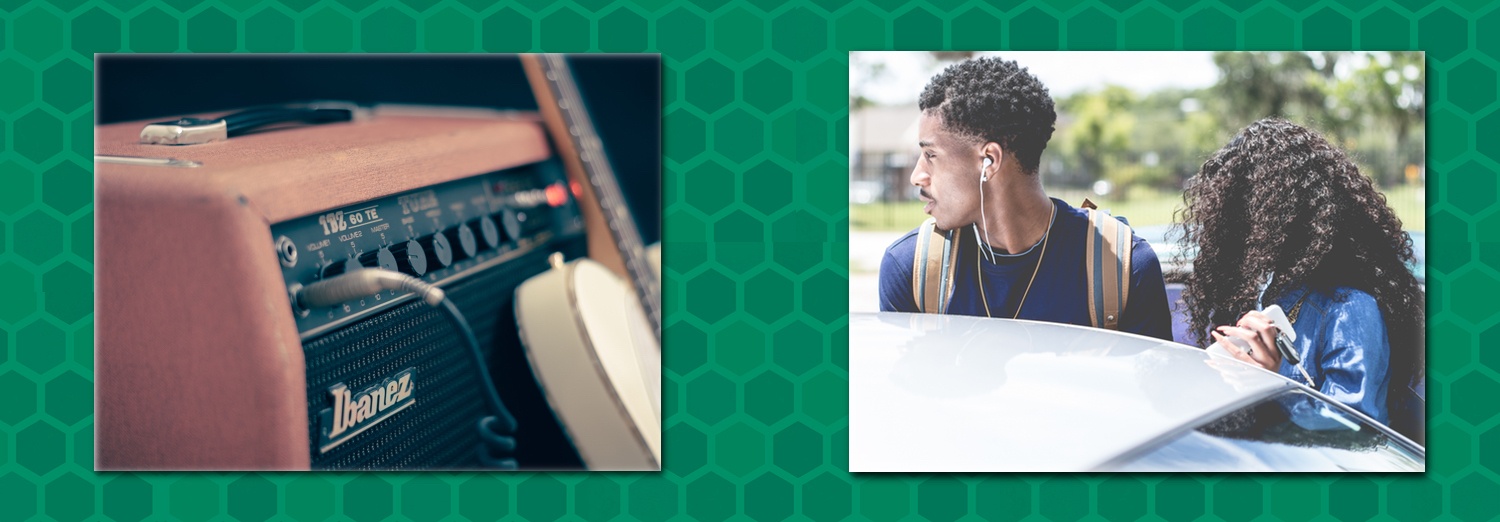Stress and lupus do NOT mix. Can listening to your favorite jam help? Check out the research on the power of music.
We all know that stress can makes things worse. A prospective study published in 1994 by Da Costa, D., et. al, found that major life stressors in the previous six months (as defined by the research participants) were a significant predictor of reduced functional ability in 42 women with SLE. Functional ability was measured using the Stanford Health Assessments Questionnaire (HAQ).
It was only negative major life stress that decreased the level of functioning of people with lupus; positive life events and stressors didn’t improve functioning.
One potential explanation for the impact of negative life events on lupus comes from a 2005 study published in the journal Lupus by Kozorca, E. , et. al. It examined coping mechanisms used by people with lupus.
The participants in the study had low disease activity and no symptoms of neuropsychiatric illness. Depressive symptoms in lupus participants were significantly associated with disengage coping and emotional coping as compared to control participants and participants with rheumatoid arthritis (RA). Improving active coping mechanisms and minimizing the emotional response to stress may help lower psychological distress for people with lupus.

You can certainly see your skills within the paintings you write. The arena hopes for more passionate writers such as you who are not afraid to say how they believe. At all times go after your heart.
I don’t even know how I stopped up here, however I thought this put up used to be great. I don’t know who you might be however certainly you are going to a famous blogger in case you are not already 😉 Cheers!
Whoa! This blog looks exactly like my old one! It’s on a totally different subject but it has pretty much the same layout and design. Excellent choice of colors!
Wow! This can be one particular of the most useful blogs We’ve ever arrive across on this subject. Basically Great. I’m also an expert in this topic so I can understand your effort.
Excellent weblog here! Additionally your web site loads up fast! What web host are you using? Can I am getting your associate hyperlink for your host? I wish my web site loaded up as fast as yours lol
Hi I am so thrilled I found your blog page, I really found you by error, while I was researching on Aol for something else, Anyways I am here now and would just like to say kudos for a remarkable post and a all round exciting blog (I also love the theme/design), I don’t have time to look over it all at the minute but I have book-marked it and also included your RSS feeds, so when I have time I will be back to read a lot more, Please do keep up the excellent job.
Hi there!
Thank you for the kind words! We will continue to provide the best lupus-related information that we can!
Best,
LupusCorner Team
Heya just wanted to give you a quick heads up and let you know a few of the images aren’t loading correctly. I’m not sure why but I think its a linking issue. I’ve tried it in two different browsers and both show the same results.
I haven’t checked in here for a while since I thought it was getting boring, but the last few posts are good quality so I guess I’ll add you back to my everyday bloglist. You deserve it friend 🙂
I like what you guys are up too. Such smart work and reporting! Carry on the superb works guys I have incorporated you guys to my blogroll. I think it will improve the value of my web site 🙂
Hey very cool web site!! Man .. Excellent .. Amazing .. I will bookmark your web site and take the feeds alsoI’m happy to find so many useful information here in the post, we need develop more strategies in this regard, thanks for sharing. . . . . .
Your writing has a way of reminding us of the power of gratitude and positivity.